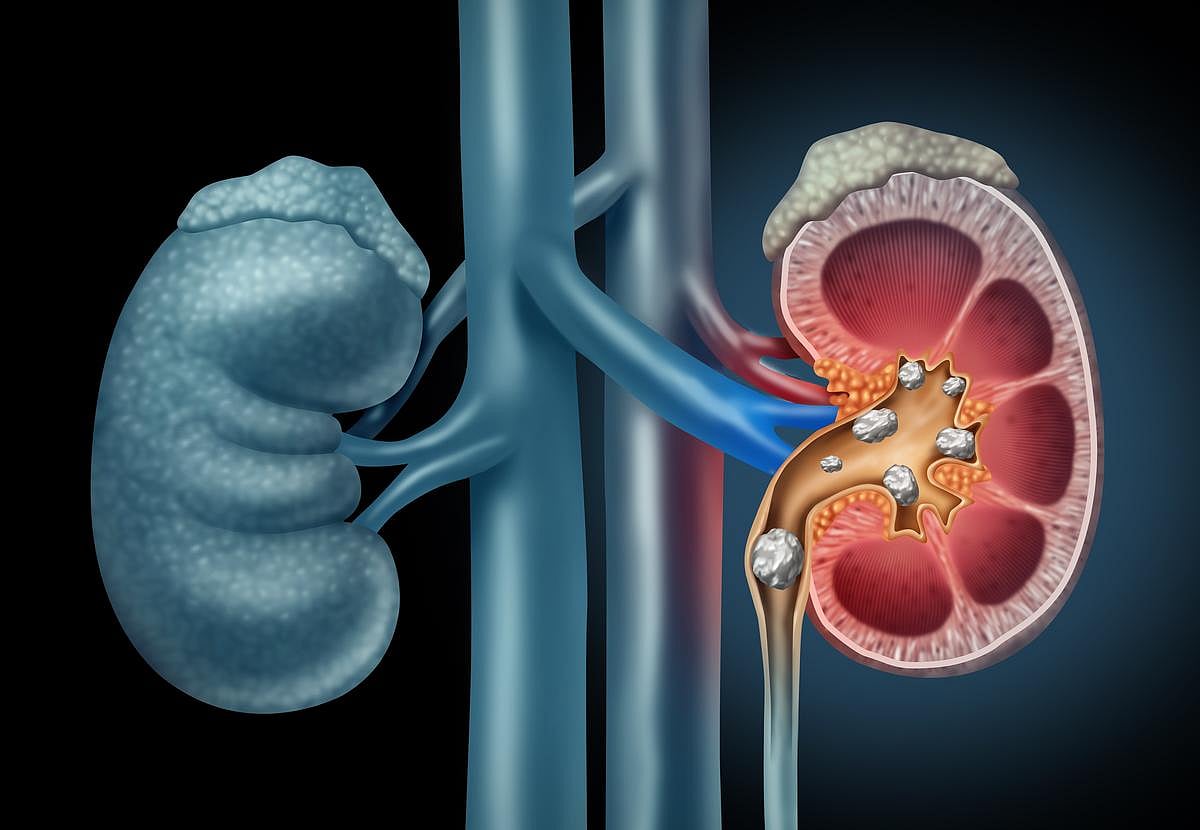Get Healthy!

- Posted October 1, 2025
Shift Workers Face Higher Risk For Kidney Stones
Folks who work a night shift are at greater risk for kidney stones, new research shows.
Shift workers have a 15% to 22% higher risk of kidney stones, particularly if they’re younger or work a desk job, according to a study published today in the journal Mayo Clinic Proceedings.
The risk was highest, 22%, among people who work a night shift, the study found.
“The findings not only suggest that shift work should be considered as a risk factor for kidney stone events, but also emphasize the need for promoting healthy lifestyles aimed at preventing kidney stone events among shift workers,” concluded the team led by senior researcher Yin Yang, an epidemiologist at Sun Yat-sen University in China.
Kidney stones are hard objects that form inside the organ from chemicals in urine. These stones can cause pain both inside the kidney and as they pass out of the body during urination, according to the National Kidney Foundation.
“Kidney stones may be silent or cause acute complications, especially pain that may be sufficiently severe so as to necessitate hospitalization,” Dr. Felix Knauf, a nephrologist with the Mayo Clinic in Rochester, Minnesota, said in a news release. Knauf wrote an editorial accompanying the study.
For the new study, researchers analyzed data from more than 220,000 people participating in the U.K. Biobank health study. During a median follow-up of nearly 14 years, nearly 2,900 participants developed a kidney stone.
People who worked any kind of shift outside the usual 9-to-5 had a 15% increased risk of kidney stones, and people who usually or always worked such shifts had a 19% increased risk compared to those who didn't work a night shift, the study showed.
Smoking, bad sleep, lack of physical activity, high body mass index (BMI) and low fluid intake were all associated with a higher risk for kidney stones, researchers said. BMI is an estimate of body fat based on height and weight.
But the effect of shift work on a person’s sleep-wake cycle — known as circadian rhythms — also likely contributes to the risk, Knauf said.
A person’s biologic clock helps govern the systems that regulate water balance and body chemistry, he added.
“Thus, the observed effect of shift work in promoting kidney stone formation reflects, at least in part, its disruptive effect on circadian rhythms,” Knauf said. “The findings of this study highlight the need to explore initiatives that seek to remediate the risk factors for kidney stones, including greater flexibility in work schedules.”
Yang agreed.
“Supporting healthy lifestyle habits among shift workers could have a meaningful impact on their urological health,” she said in a news release.
“Workplace health promotion initiatives could integrate educational programs emphasizing the importance of weight management, increased fluid intake, healthy sleep habits, reduced sedentary behavior and smoking cessation,” Yang said. “These interventions have the potential to alleviate the adverse effects of shift work on kidney stone formation and improve workers’ health.”
More information
The National Institute of Diabetes and Digestive and Kidney Diseases has more on kidney stones.
SOURCES: Mayo Clinic, news release, Oct. 1, 2025; Mayo Clinic Proceedings, Oct. 1, 2025




